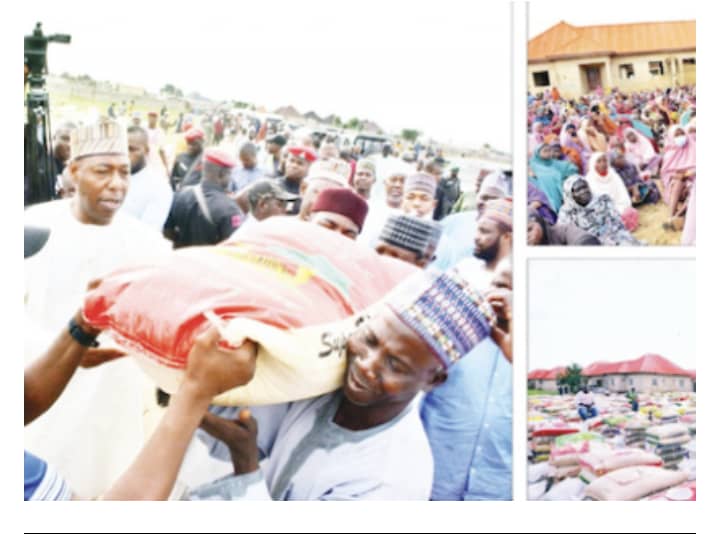Addressing Public Outrage: States Criticized for Stockpiling Rice and Delaying Distribution of Palliatives
In a time when vulnerable communities are in dire need of assistance, it is disheartening to witness certain states stockpiling essential supplies and delaying the distribution of palliatives. This has led to widespread anger among the public, with many questioning the motives behind such actions. One recent incident of this nature occurred in Borno State, where Governor Babagana Zulum’s distribution of food palliatives to 3,000 vulnerable residents faced criticism due to alleged delays and inefficiencies. Let’s delve deeper into this issue and explore the consequences it has on the affected communities.
The Plight of Vulnerable Residents:
Borno State, located in northeastern Nigeria, has been grappling with the devastating impact of conflict and displacement for several years. The vulnerable residents of this state rely heavily on external aid, such as food palliatives, to meet their basic needs. However, the recent delays in distributing these essential supplies have only exacerbated their hardships. The delay not only prolongs their suffering but also undermines their trust in the government’s ability to provide timely assistance.
Governor Zulum’s Efforts:
Governor Babagana Zulum’s initiative to distribute food palliatives to the vulnerable residents of Borno State is commendable. It demonstrates a recognition of the dire circumstances faced by these individuals and a commitment to alleviate their suffering. However, reports of delays and inefficiencies in the distribution process have raised concerns among the public. It is crucial for the government to ensure transparency and accountability in the management and distribution of relief materials.
Public Outrage and Criticism:
The news of states stockpiling rice and delaying the distribution of palliatives has sparked public outrage across the country. Many individuals have expressed their frustration and disappointment, citing the urgent need for immediate action to address the precarious situation faced by vulnerable communities. Such actions are seen as a betrayal of the trust placed in the government to prioritize the welfare of its citizens.
Implications for the Affected Communities:
The consequences of delayed distribution of palliatives are far-reaching and affect the lives of those who are already suffering. Hunger, malnutrition, and increased vulnerability to diseases are among the immediate risks faced by these communities. Moreover, the lack of transparency in the distribution process creates an atmosphere of mistrust, further eroding the relationship between the government and its people.
The Way Forward:
To restore public trust and effectively address the urgent needs of vulnerable communities, it is imperative for state governments to take immediate action. Firstly, transparency and accountability must be prioritized throughout the distribution process. This can be achieved by establishing clear guidelines, implementing strict monitoring mechanisms, and involving independent organizations in the oversight of relief operations. Additionally, timely and efficient distribution of palliatives should be ensured, with a focus on reaching the most vulnerable populations.
The delays in distributing food palliatives and the stockpiling of essential supplies by certain states have ignited public anger and raised serious concerns about the welfare of vulnerable communities. It is essential for governments to swiftly address these issues, restore public trust, and prioritize the urgent needs of those who rely on external aid. By implementing transparent and efficient distribution processes, we can ensure that assistance reaches those who need it most, providing them with the support and relief they desperately require.







